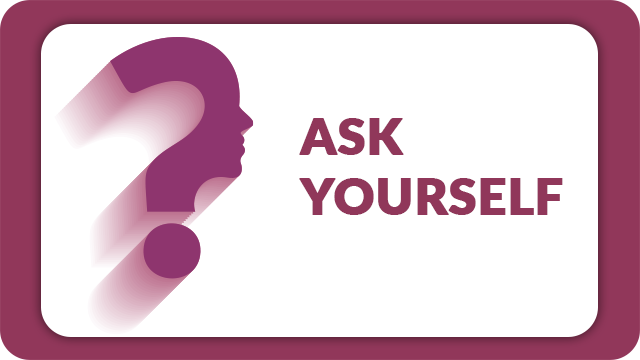Before you consider a career in life coaching, start asking yourself the following questions:
- Should I get a life coaching certification?
- What kind of curriculum will best support my career?
- Is the school accredited by a credentialing organization?
SHOULD I GET A LIFE COACHING CERTIFICATION?
There are many benefits to obtaining a life coaching certification (as long as you choose the right one). Let’s go through my top three.
- Choosing a high-quality certification will give you the opportunity to experience incredible personal transformations. Your transformations will come from the coaching you will receive from other students, from your work with your faculty, and of course, from your self-guided work.
- A legitimate coaching certification will give you the powerful tools, strategies, and resources you need to help your future clients break through their most challenging and unforeseen circumstances. You should learn how to work with your future clients through various circumstances.
- The third benefit is the opportunity to experience real-life practice in a safe container. A great coaching school will create space for students to coach one another and support students in coaching their own network while receiving the support of the training.
WHAT KIND OF CURRICULUM WILL BEST SUPPORT MY CAREER?
A great coach training program should be taught by the best teachers you can find! Don’t model anyone less than the best! I chose to study with Cloe Madanes and Tony Robbins, the founders of Robbins-Madanes Training. Here’s some more information about each of them.
CLOE MADANES
Cloe Madanes, the co-founder of Robbins Madanes Training, has been actively working in and pioneering the field of psychotherapy since the 1970s. Her professional experience and world-renowned publications predate the development of the ICF and CCE by more than 30 years. She is a world-renowned innovator and teacher of life coaching and family therapy. She authored nine books that are classics in the field. She partnered with Tony Robbins to create the Robbins-Madanes Training Program and, in 2024, had already trained more than 14,000 life coaches worldwide.
Cloe has presented her work at many national and international professional conferences and has given keynote addresses for the American Association of Marriage and Family Therapy, the National Association of Social Workers, the Evolution of Psychotherapy Conference, the Erickson Foundation, the California Psychological Association, and many other organizations.
Madanes has won several awards for distinguished contributions to psychology and has counseled outstanding individuals from all walks of life. She has been featured in Newsweek, the Washington Post, Vogue magazine, The Washington Jewish Weekly, and the Boston Globe. Her books have been translated into more than twenty languages. (1)
TONY ROBBINS
Tony Robbins started working in the personal growth industry in the late 70s and held his first seminars in the early 80s. He launched Robbins Research International in 1983 and became recognized as the leading personal development and coaching authority. Tony is an entrepreneur, #1 NY Times bestselling author, philanthropist, and is recognized as the world’s #1 life and business strategist. Tony is the author of six international best sellers and is involved in more than 100 privately held businesses with combined sales exceeding $7 billion annually. He has worked with four US presidents, top entertainers, athletes, business leaders, and financial moguls. (2)
ROBBINS MADANES TRAINING
Robbins Madanes Training courses are based on Strategic Intervention. Strategic Intervention draws from the most impactful strategies, models, and techniques drawn from sociology, neurolinguistic programming, strategic family therapy, brief strategic therapy, social action therapy, direct and indirect negotiation, the third side, Ericksonian therapy, structural family therapy, human needs psychology, life-cycle theory of business organizations, conflict resolution techniques, organizational psychology, and community organization.
I’ve taken their core life-coach training programs (Core100 & Core200), which comprise over 300 hours of training content. These programs include intervention demonstrations conducted by Tony Robbins and narrated by Cloe Madanes. Every week, students are invited to join Cloe in a live training/Q&A session, where you’ll also be given the opportunity to practice your newly formed skills with one another. All training programs contain specific resources to help students leverage valuable techniques and models.
IS THE SCHOOL ACCREDITED BY A CREDENTIALING ORGANIZATION?
I’ve seen so many prospective coaches post questions online based on an inherent misunderstanding of the framework surrounding the coaching industry, so I’m here to clear that up for everyone. First, you must learn the difference between governing bodies, professional associations, and credentialing organizations to understand the framework properly.
GOVERNING BODIES
Governing bodies establish licensure requirements and enforce ethical codes within a specific jurisdiction. They may also have the authority to discipline professionals who violate these codes. Currently, there are no governing bodies that regulate the field of coaching.
PROFESSIONAL ASSOCIATIONS
Professional Associations, such as the Association for Coaching and the Worldwide Association for Business Coaches (WABC), represent skilled professionals and organizations that share a vision to legitimize the practice of their occupation (3), “safeguard the public interest” (4), and advance their field.
CREDENTIALING ORGANIZATIONS
Credentialing organizations such as The Center for Credentialing & Education and the International Coaching Federation set standards for certifications, assess qualifications through exams, and maintain a registry of certified professionals.
IS ROBBINS MADANES TRAINING ICF-CERTIFIED OR BCC-CERTIFIED?
In 1995, the International Coaching Federation (ICF) was established “for the purpose of having a space for all coaches to support one another and help grow the profession.” (5)
In 1999, the ICF launched a business initiative to accredit coach training programs. To do this, they created a Code of Ethics and Core Competencies, followed by a set of strict requirements that must be adhered to become ICF-accredited. These requirements include the ICF Code of Ethics and Core Competencies and include demonstrating ethical practice, embodying a coaching mindset, establishing and maintaining agreements, cultivating trust and safety, maintaining presence, listening actively, evoking awareness, and facilitating client growth. (6).
While these competencies are valid and applicable to all coaches, the ICF Code of Conduct reads, that to be listed as an ICF-accredited training program,
“Eighty percent of the course must cover the ICF Code of Ethics, Core Competencies and Definition of Coaching. Twenty percent can include Resource Development (RD) material” (ICF Code of Conduct, January 2024). (7)
While this agenda may fit the needs of some training programs, others will see it as detrimental to their curriculum development.
While Robbins Madanes trains professionals to acquire these competencies, its advanced curriculum doesn’t fit into the ICF’s 80/20 model. However, it more than fulfills the requirements of The Center For Credentialing & Education (CCE).
The Center for Credentialing & Education (CCE) has outlined standards that must be met to become a Board Certified Coach (BCC). Those standards include meeting stringent educational and training requirements, passing a rigorous coach-specific examination, obtaining a precise number of hours of coaching experience, submitting earnest professional references, and demonstrating a powerful commitment to ethical coaching and continuing education.
Upon construction of the first series of curricula made at RMT, the CCD requirements were more aligned with the work, mission, and values of the teachings and inherent structure of Robbins Madanes Training programs. That led RMT to decide to initially partner with the Center for Credentialing & Education as its partner in accreditation. Moving forward, RMT is in the process of developing curricula that will also be able to become accredited by the ICF.
KEY DIFFERENCES BETWEEN THE CCE & THE ICF
| Organization | CCE | ICF |
| Founded | 1995 | 1995 |
| Focus | Narrowly focused on granting certifications in specific areas of coaching. | Broadly focused on the profession of coaching in general. They don’t offer credentials in specific coaching niches. |
| Credentials | Voluntary. BCC offers credentials that correspond with the quantity of education and experience required to earn it, as well as specific areas of coaching. Specialty designations are available in business and executive leadership coaching, career coaching, health and wellness coaching, and personal/life coaching. | Voluntary. ICF offers three credentials, corresponding with the quantity of education and experience required to earn it |
MORE ABOUT THE CENTER FOR CREDENTIALING & EDUCATION
The National Board for Certified Counselors, Inc. and Affiliates (NBCC) is the premier credentialing body for counselors. It was established as a not-for-profit, independent certification organization in 1982. It ensures that counselors who become nationally certified have achieved the highest standard of practice through education, examination, supervision, experience, and ethical guidelines. (8)
The Center for Credentialing & Education (CCE) is a not-for-profit organization that provides practitioners and organizations with assessments and credentialing. Created in 1995 as an affiliate of the National Board for Certified Counselors (NBCC), 1,000,000+ counseling professionals have already engaged with CCE on behalf of state licensure boards. CCE’s government affairs initiatives also include advocating for the counseling profession at the state and federal levels.
The Board Certified Coach (BCC) certification has been a mark of distinction since 2011. A BCC has met professional coaching competency standards established by CCE and subject matter experts. Earning the BCC credential solidifies the coach’s professional identity. Specialty designations are available in business and executive leadership coaching, career coaching, health and wellness coaching, and personal/life coaching.
CCE has Registered Credential Training Providers (RCTPs), such as Robbins Madanes Training, who develop high-quality training that advances the knowledge and expertise of credential holders. Upon completing a Robbins Madanes Training course, fulfilling the professional experience requirements, passing an examination, and verifying your Bachelor’s degree and coaching certification, individuals can apply for the Board Certified Coach (BCC) certification.
The work done by Robbins Madanes Training, an RCTP, is extremely important for setting standards and legitimizing the coaching field. Dr. Lawson-Graves, the Director of Business Development for the CCE, shares that RMT “ensures that professionals are well-trained and prepared to pursue or advance in their chosen fields.”
“We take public safety seriously. As part of our business model, we want to make sure that individuals who want to earn a CCE credential are well-prepared. We partner with highly qualified trainers who prepare credential holders to work safely and effectively with their clients and make sure that they are implementing the best practices in their business.” – Dr. Lawson-Graves says. (9)
CONCLUSION
Pursuing certification through ICF, CCE, or other independent organizations is a personal decision. RMT is the only training program in the world to offer first-hand strategic intervention training based on the work of Tony Robbins and Cloe Madanes, a distinction that sets us apart from other programs. While we acknowledge and celebrate the standards to which the ICF holds themselves and their accredited training partners, our commitment will continue to be focused on providing students with the highest quality of coach training. Changing our programs to align with ICF requirements would betray that commitment.
By partnering with the CCE, RMT ensures that their students receive the highest level of training and have the opportunity to achieve the designation of “Board Certified Coach” which can only be awarded by the Center for Credentialing & Education.
- Madanes Institute. “Madanes Institute.” Madanes Institute, www.cloemadanes.com.
- “Tony Robbins – the Official Website of Tony Robbins.” com, 1 Feb. 2024, www.tonyrobbins.com.
- Harvey, L. (2004). “Professional body”. Quality Research International. Analytic Quality Glossary. Archived from the original on 2019-02-16. Retrieved 2008-09-14.
- Harvey, L.; Mason, S.; Ward, R. (1995). Role of Professional Bodies in Higher Education Quality Monitoring. Birmingham: Quality in Higher Education Project. ISBN 1-85920-108-3.
- “History of ICF.” International Coaching Federation, org/history.
- org/credentials-and-standards/core-competencies 2024
- https://coachingfederation.org/app/uploads/2024/01/ICF-CE_Code-of-Conduct_01.01.24-1.pdf
- “About Us.” The National Board for Certified Counselors, Inc. and Affiliates, nbcc.org/about.
- “Advance Your Journey.” Center For Credentialing & Education, www.cce-global.org/assets/impactbook/.




